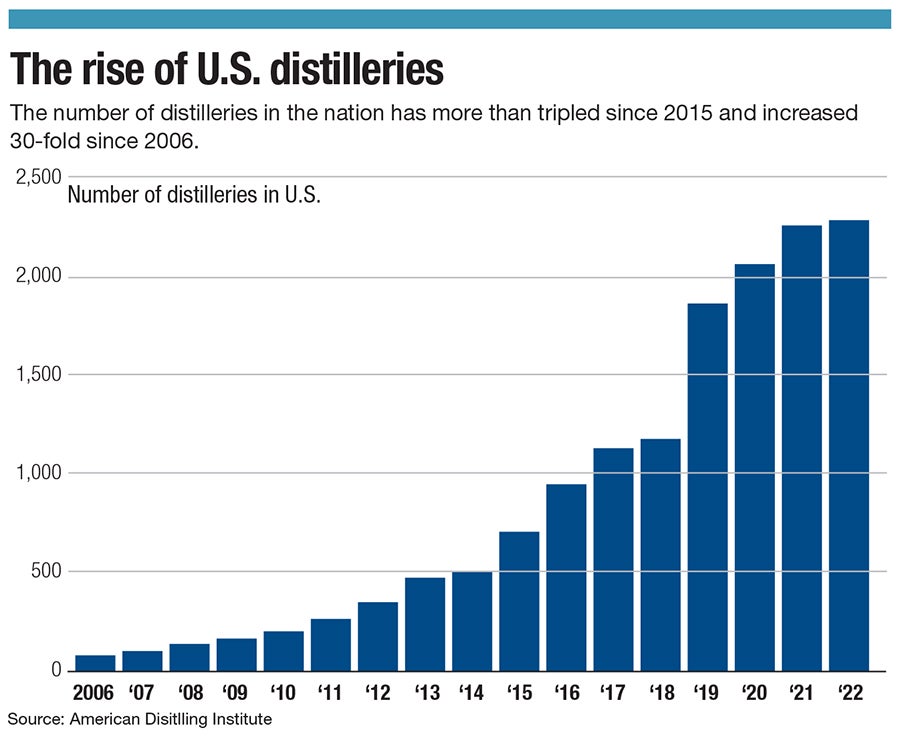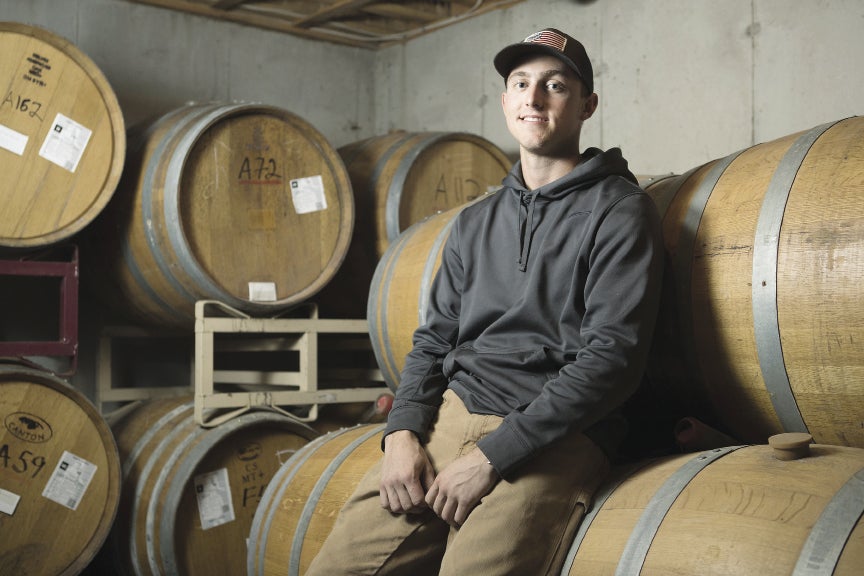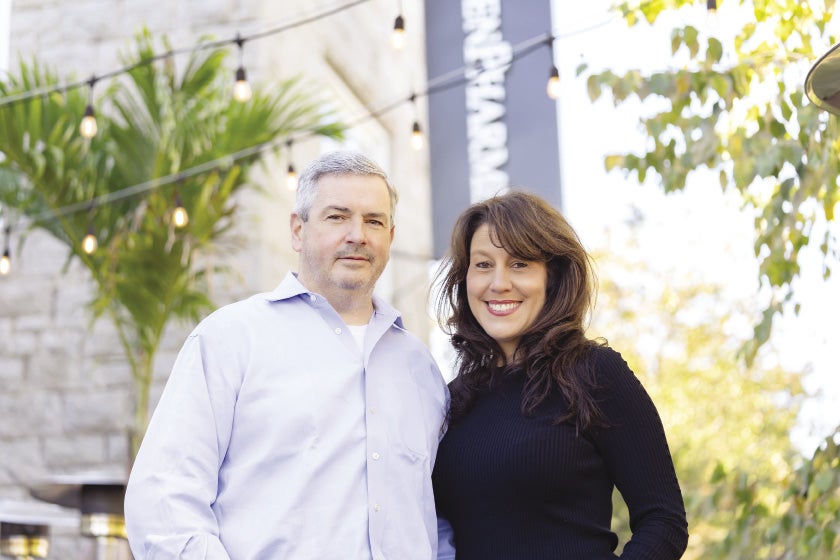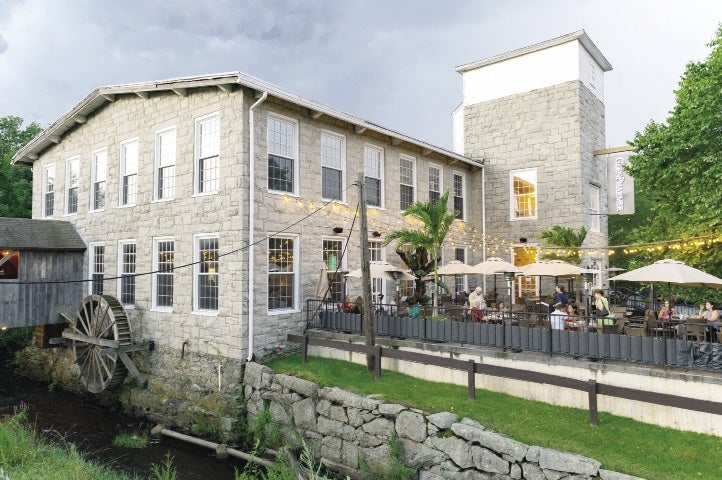The next phase in the craft alcohol movement has arrived in Central Massachusetts.
Get Instant Access to This Article
Subscribe to Worcester Business Journal and get immediate access to all of our subscriber-only content and much more.
- Critical Central Massachusetts business news updated daily.
- Immediate access to all subscriber-only content on our website.
- Bi-weekly print or digital editions of our award-winning publication.
- Special bonus issues like the WBJ Book of Lists.
- Exclusive ticket prize draws for our in-person events.
Click here to purchase a paywall bypass link for this article.
The next phase in the craft alcohol movement has arrived in Central Massachusetts.
In 2022, market share revenue for spirits like tequila, gin, and rum grew for the 13th consecutive year and leap-frogged beer in the U.S. for the first time, according to the trade association Distilled Spirits Council of the United States. That same year, the beer industry lost 2% of its total volume sales while spirits increased total volume sales for the 25th year in a row, according to IWSR Drinks Market Analysis Ltd.
As breweries have become ubiquitous, the next unexplored market is local distilleries. And open they have. In the past three years, four distilleries have opened in Central Massachusetts to go along with Tree House Brewing Co., one of the largest breweries in the area, opening its own distillery since first announcing it in 2021.
“In 2018, we saw potential in the craft spirit industry,” said Justin Pelletier, chief operating officer and quality control manager for Nashoba Valley Spirits in Bolton. “We saw over the last 20 years how the craft beer industry has grown, and we had a pretty good sense as to what the wine industry was, but we saw a pretty big opportunity in the craft spirits industry.”
Reviving a tradition
None of this should be a surprise. New England was once a hotbed of distilling, which is an alcoholic beverage distilled from grains, fruits, or other fermentable ingredients. Distillation is the process of separating a liquid mixture by using selective boiling and condensation, usually inside a still. The result is a beverage stronger than beer and wine. Distilled spirits include brandy, gin, rum, tequila, whiskey, vodka, and various flavored liqueurs.

Rum was once the preferred drink of New England colonists. In the 18th Century, New England became a hub of distilleries producing the alcoholic beverage. Every year, colonists drank it by the gallon – roughly five gallons a year – from the more than 200 distilleries in the region, according to the history website tell New England. But after the Revolutionary War, the introduction of whiskey, westward expansion, and influxes of immigrants from beer-drinking regions, distilling of rum lost its luster. Along with it went the distilleries. Bourbon and other American whiskeys took rum’s place.
When Prohibition hit in the 20th Century, rum all but disappeared.
Local and craft spirits didn’t come into play until after the turn of the century when craft beer was taking off. The first farmer distillery license was handed out in 2003 to Nashoba Valley Spirits, which is part of Nashoba Valley Winery in Bolton, but it didn’t gain mass appeal at first. Bully Boy Distillers claims to be the first distiller to open since prohibition in Boston, and it opened in 2010. In Central Massachusetts, the trend has taken a bit longer, but now it’s here. Since 2020, not only did Tree House open a distillery, but they’ve also cropped up with Deep Roots Distillery USA in Sturbridge, GlenPharmer Distillery in Franklin, Beaver Pond Distillery in Petersham, and Spicy Water Distillery in Millbury.
But first came Nashoba Valley Spirits.
Nashoba Valley Winery opened in 1976 as part of Jack Partridge’s vision to create something new out of the past. He purchased the land in Bolton in 1983 and built the original wine shop and replanted the orchard. In 1995, Rich and Cindy Pelletier purchased the winery and orchard from him and began to build out their own legacy. By the turn of the century, an idea grew to build a distillery as a way to use all the extra harvested fruit.
“The first few spirits that we made were all actually apple-based,” said Justin Pelletier. “We did an apple brandy, we did a vodka, and we did a gin.”

For Nashoba Valley, making spirits was another way to use the products it grew. The owners didn’t want to waste anything they harvested on the orchard. On top of making cider and wine, the facility grew into a wholesale alcoholic beverage company that also brews beer.
“We don't import any neutral grain spirit; we don't import any washes or anything like that,” Pelletier said. “It's all done right here onsite, start to finish.”
When Pelletier and his family saw an opportunity, others took notice too.
The newest distilleries
Keith Devarenne retired from his job working in corrections and was looking for something to do during the COVID pandemic. While watching TV, an idea to open a distillery sprouted. He started digging around, looking to see the plausibility and potential for a second career.
“We found out that there were no distilleries in the area, and it'd be a great way to highlight some of the things that Central Mass. has to offer,” Devarenne said.
Devarenne bought a still and started working on making various spirits. He and his wife Errica would share their creations with neighbors and tweak recipes. They started searching in Sturbridge to open their project and found an old mill they could renovate, which took about a year to complete. They applied for permits and licenses and found a welcoming community interested in bringing their business to life. Deep Roots Distillery USA had its ribbon-cutting ceremony on March 31.
In Franklin, Pat and Beth Downing began visiting and touring more than 75 distilleries across the U.S. as they began planning to open their own. The couple met in pharmacy school at Purdue University in Indiana and moved to Lee, Massachusetts, to run Pat’s family drug store, McClelland Drug Store, which was the oldest continuously-operated pharmacy in the state. After 14 years, the couple sold the drug store and started to look for the next phase of their lives.
At the same time, Pat became interested in whiskey. They moved on to new careers, with Pat working for a pharmacy services company and Beth joining an in-home infusion pharmacy. Their love of spirits stuck around, and they began to plot a project outside of the pharmacy world. When a mill building built in 1883 became available in Franklin, where the couple lives, they purchased it and their next phase took off. Pat attended Moonshine University in Louisville, Kentucky, and began to hire a team to open a distillery and a tasting room with a fine food program.

“What we envisioned was this idea ... we could create a destination, a place where people wanted to come for many reasons. Some might come to taste alcohol, some might come to do a tour of a distillery or see a distillery operation, some might come for what we call polished casual dining experience, some might come just to see an old mill building that's been restored,” Pat Downing said. “We always loved Franklin and felt that it could pull not only people from the town, but pull from the region and because of its proximity to 495.”
GlenPharmer Distillery opened in May 2020, and while it was hard opening early in the COVID pandemic, people seemed to enjoy stopping in. They were excited about the new opportunity.
“There wasn't anything near it, in terms of other distilleries,” Pat Downing said. “Obviously, there are a lot of breweries around, but there really aren’t any distilleries nearby. We thought that could be very interesting. Obviously there's a risk; but thankfully people have been interested, and our spirits have been received well.”
As time has gone on and as the pandemic has eased, the distillery has made strides. It found a local footing with its food and cocktail program. The team at GlenPharmer started making and aging whiskey and importing agave from Mexico. Now it distributes locally on its own and is in negotiations to join a distributor in the future.
All of this fits in with the next steps for craft spirits. It took years for craft breweries to gain traction and a foothold in the industry. It took time for them to gain reach and distribution, as well as brand recognition on the shelf. But craft beer discovered a market and began to open in towns across the country and Mass. It will take time, but the distillers now open are leading the way for the next generation of local businesses.

